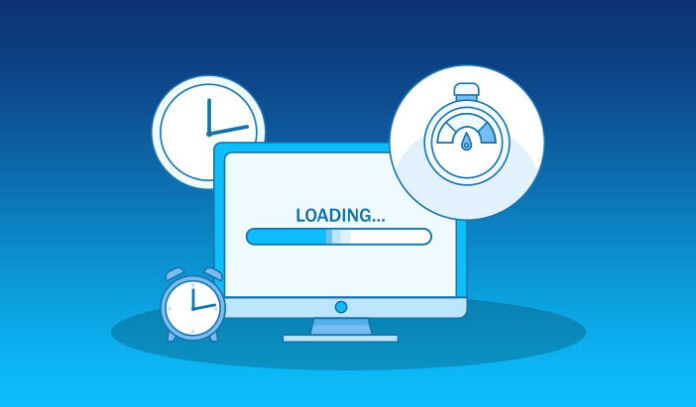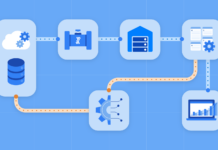The effect of web hosting on your site speed is often overlooked. Most of the checklists you look up online might not have it, yet it’s something you should not ignore. If your site is still sluggish despite going through the various checks, then your next destination should be your web host.
Speed is a critical factor to your website, and at this point it’s nothing to compromise. Good news is that it’s not difficult to get the facts about your site speed from your host and correct the limitations.
Let’s take a deeper look.
Importance of web hosting

You might not have seen this before, but your site performance also depends on the hosting plan and the provider. For example, you can go for a shared hosting plan. It has its advantages such as ease of use and affordability. It is a great choice if your average daily visitors fall below 1000, says Alpha Efficiency.
However, if you expect more than that, or your website requires more resources, such as custom apps and online streaming, you’ll need a better plan. It will lead to poor website experience, because of underwhelming site performance as the RAM is low and bandwidth is limited.
What is site speed?

Site speed refers to the rate at which your webpage and its content appears on a browser. All the components on the webpage need to load completely to contribute to the site speed. They can include forms, images or text. The longer it takes, the lower the site speed. If the website visitors find yours redundant, they will leave and log on to another one.
Why you should prioritize your web host

As we’ve seen above, the web hosting plan you choose will impact your site speed. A user is less likely to stay around if they cannot get good speeds. It is a huge turn off, and you don’t want that for your website. You’ll struggle to gather any conversions and leads.
The current technologies demand that your website is fast. For example, the Google Search Engine algorithm favors fast websites in ranking. Most search engine traffic now comes from mobile browsing, and every second is critical for users. If your site is slow, you’ll lose out, and the users will end up switching to your competitors.
Hosting factors that affect speed
When choosing your web host or the hosting plan, you should consider these factors;
- Resources– usually you’ll get a list of resources that you’re getting from your host such as RAM and the bandwidth. If you are subscribing to the lower end of it, do not expect significantly high speeds. Instead, ask for a virtual private server(VPS) or a dedicated server. You will get high performance hosting, as the resources will be more and faster.
- Hard drive– a standard hard drive won’t cut it if you are looking for high website speed. Instead, opt for a solid-state drive as it is faster than the ordinary hard drive.
- Bandwidth– it defines the amount of data that you can transfer through your web host. It is like an information pipeline. If you opt for a limited bandwidth it will affect the site speed in the same way. Therefore, it will take a lot of time to transmit data, and you do not want such an experience for your users.
- RAM(Random Access Memory)– you’ll less likely find this word pronounced or written in full. If you don’t know about it yet, it is what’s essential to running your website. Without it, you won’t be able to install apps and run basic website components, such as scripts. It is the memory storage that handles everything.
Importance of site speed when selecting a web host

Your site’s speed is a significant issue because it influences user experience. If website visitors do not fancy your site’s performance, they are less likely to continue hanging around. Google revealed statistics showing that users will leave a page nine out of ten times if it has low loading speed.
The increase of mobile browsing also prompts for investment into the site speed because they are the top used devices. Site speed matters for your search engine ranking making it part of the SEO plan to choose a suitable web host. It is evident with more technologies coming up to improve website performance.
Every second counts because it is a determinant to whether you will gain or lose a customer. It makes it a critical matter when choosing a web host. You do not want to select one that will end up hampering your business activities.
Which is the best web hosting option?

For the fastest speeds, a dedicated server will work efficiently. It is recommended especially if your website contains a lot of elements, for example, an e-commerce site. In such a scenario a shared hosting plan will not fit well even if you have optimized all the site semantics. You might get a spike in traffic which will destabilize the loading speed because the website will be operating with limited RAM space and bandwidth.
A dedicated server gives you a better allowance to work with. It is unlikely that you will ever reach the limits provided. You’ll work with high bandwidth and a bigger RAM space which allows you to deal with high demands for resources and alot of traffic.
A dedicated server is costlier than a shared hosting plan. It is worth the investment because you do not have to worry about limited site speed. A good alternative is a virtual private server. It is almost similar to a shared server in costs, but offers a wider range of resources. You are also guaranteed of a decent site speed.
Final thoughts
When choosing your host and the plans they offer, don’t be in a rush. Consider your website needs. For example, if you have a wide scope of resource needs or expect high traffic, select a high-tier plan. Site speed and SEO, are critical components for visibility and usability of your website and you do not want to mess that up. When you have a good understanding of how web hosting works, you’ll make a good decision.









